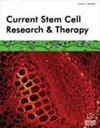Outcomes of Patients with Heavily Pretreated Relapsed/Refractory Multiple Myeloma Receiving Salvage Cytotoxic Therapy with Supportive Stem Cell Boost
IF 2.1
4区 医学
Q4 CELL & TISSUE ENGINEERING
引用次数: 0
Abstract
Background: Multiple myeloma (MM) is an incurable hematologic malignancy characterized by the neoplastic proliferation of plasma cells, which produce monoclonal immunoglobulin that can cause vital organ damage, subsequently leading to significant morbidity and mortality. Autologous hematopoietic stem cell transplant (ASCT) is the standard-of-care management of eligible patients with newly diagnosed MM. Experts recommend collecting enough stem cells upfront to support a possible tandem transplant, salvage ASCT, or a stem cell “boost” to allow for the administration of multiagent cytotoxic chemotherapy in patients with relapsed/refractory disease. background: Multiple myeloma (MM) is an incurable hematologic malignancy characterized by the neoplastic proliferation of plasma cells which produce monoclonal immunoglobulin that can cause vital organ damage, subsequently leading to significant morbidity and mortality. Autologous hematopoietic stem cell transplant (ASCT) is the standard-of-care management of eligible patients with newly diagnosed MM. Experts recommend collecting enough stem cells upfront to support a possible tandem transplant, salvage ASCT, or a stem cell “boost” to allow for the administration of multiagent cytotoxic chemotherapy in patients with relapsed/refractory disease. Objective: There is currently a paucity of data on the response rates and outcomes of patients with relapsed MM who undergo cytotoxic chemotherapy followed by a stem cell boost; this study examines the outcomes of patients treated with this approach. Methods: We conducted a retrospective chart review from two oncologic treatment centers in the United States of adult patients who underwent a first ASCT between 1999 and 2021 and subsequently received cytotoxic chemotherapy followed by stem cell boost further on in their disease course. Survival analysis was carried out using the Kaplan-Meier method, and the log-rank test was used to compare survival curves. Results: We found that the majority (56.6%) of these patients responded to therapy and that 60.6% of these patients were able to receive at least one subsequent line of therapy post-boost. Furthermore, patients who responded to therapy had significantly longer median overall survival compared to those who did not respond (323 days vs 93 days, p=0.0045), and age did not affect response to therapy. Conclusion: This data allow clinicians to appropriately implement and inform patients of the therapeutic uses and clinical outcomes of stem cell boost in patients with multiply relapsed/refractory MM.接受挽救性细胞毒性疗法并辅助干细胞强化治疗的重症复发/难治性多发性骨髓瘤患者的疗效
背景:多发性骨髓瘤(MM)是一种无法治愈的血液系统恶性肿瘤:多发性骨髓瘤(MM)是一种无法治愈的血液系统恶性肿瘤,其特征是浆细胞的肿瘤性增殖,浆细胞产生的单克隆免疫球蛋白可造成重要器官损伤,从而导致严重的发病率和死亡率。自体造血干细胞移植(ASCT)是治疗符合条件的新诊断MM患者的标准方法。专家建议先收集足够的干细胞,以支持可能的串联移植、挽救性ASCT或干细胞 "增量",以便对复发/难治性疾病患者进行多药细胞毒性化疗:多发性骨髓瘤(MM)是一种无法治愈的血液系统恶性肿瘤,其特征是浆细胞的肿瘤性增生,浆细胞产生的单克隆免疫球蛋白可导致重要器官损伤,进而导致严重的发病率和死亡率。自体造血干细胞移植(ASCT)是治疗符合条件的新诊断 MM 患者的标准方法。专家建议前期收集足够的干细胞,以支持可能的串联移植、挽救性ASCT或干细胞 "增量",以便对复发/难治性疾病患者进行多药细胞毒性化疗。目的:目前,有关复发性骨髓瘤患者接受细胞毒性化疗后再进行干细胞增效治疗的反应率和疗效的数据很少;本研究探讨了采用这种方法治疗的患者的疗效。方法:我们对美国两家肿瘤治疗中心1999年至2021年间接受首次ASCT治疗、随后接受细胞毒性化疗和干细胞增效治疗的成年患者进行了回顾性病历审查。采用卡普兰-梅耶法进行生存分析,并用对数秩检验比较生存曲线。结果我们发现,这些患者中的大多数(56.6%)对治疗有反应,其中 60.6% 的患者能够在增效后接受至少一种后续治疗。此外,对治疗有反应的患者的中位总生存期明显长于没有反应的患者(323 天 vs 93 天,P=0.0045),而年龄并不影响对治疗的反应。结论临床医生可根据这些数据,对多次复发/难治性MM患者适当实施干细胞促进疗法,并告知患者其治疗用途和临床结果。
本文章由计算机程序翻译,如有差异,请以英文原文为准。
求助全文
约1分钟内获得全文
求助全文
来源期刊

Current stem cell research & therapy
CELL & TISSUE ENGINEERING-CELL BIOLOGY
CiteScore
4.20
自引率
3.70%
发文量
197
审稿时长
>12 weeks
期刊介绍:
Current Stem Cell Research & Therapy publishes high quality frontier reviews, drug clinical trial studies and guest edited issues on all aspects of basic research on stem cells and their uses in clinical therapy. The journal is essential reading for all researchers and clinicians involved in stem cells research.
 求助内容:
求助内容: 应助结果提醒方式:
应助结果提醒方式:


